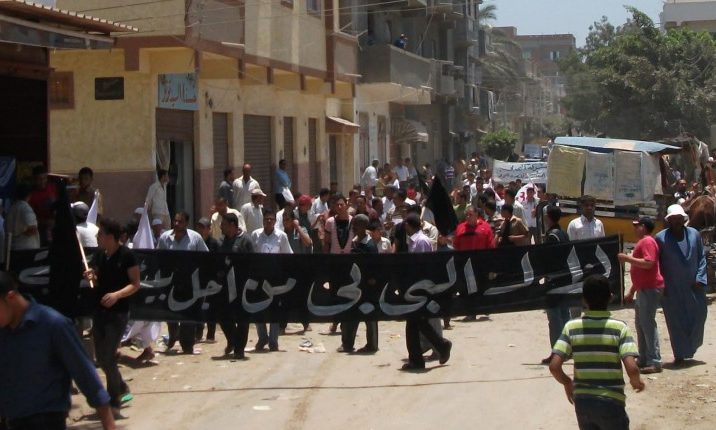BP has secured lucrative deals under successive administrations in Egypt regardless of their human rights records, from former dictator Hosni Mubarak to current President Abdel Fattah el-Sisi, elected following a military coup.
BP was initially forced to put a flagship project on hold when, in 2011, residents of the town of Idku mobilised against a plan to build a mega-gas plant next to their homes. After long delays, the local resistance forced BP to concede and it started looking for a different site. Once again, popular opposition forced BP to halt construction.
But as part of the clampdown on public criticism under newly installed President Sisi, a strict and repressive anti-protest law was enacted on the 24th November 2013, with a Counter Terrorism law enacted in August 2015, constraining rights to protest and opposition even further. With opposition now all but impossible in Idku, BP’s way was cleared and the company signed the final agreement for the project to go ahead back in its original location in 2015.
‘British Petroleum is an agent of, and I know this sounds harsh, looting – looting the natural gas for the benefit of European nations…’
– Saad Al-Shalaby, Resident of Idku
Human Rights Watch (HRW) have stated that:
‘[Sisi’s Counter Terrorism law] increases authorities’ power to impose heavy sentences, including the death penalty, for crimes under a definition of terrorism that is so broadly worded it could encompass civil disobedience.’
And Amnesty International have highlighted that:
‘The vague and overly broad definition of “terrorist act” included in the law allows the authorities to suppress any form of peaceful dissent.’
Given the closeness of its relationship with the Egyptian government and their joint ventures, BP has benefited from Sisi’s repressive new laws.
Speaking at Egypt’s Economic Development Conference in Sharm el-Sheikh in March 2015, BP CEO Bob Dudley commented that:
‘We have seen in the last year, and particularly in the last three or four months, the term that many people use in Egypt: we can see the red tape being cut.’
While BP might not have publicly advocated for specific changes in legislation, the Sisi regime has undoubtedly created a situation that is favourable for the company. In recent years, it has secured unheard-of terms where it gains 100% of the profits – with any risk of popular opposition, public protest or proper accountability all but removed.
Read the full story in Culture Unstained’s 2017 report, Bad Company: BP, human rights and corporate crimes.
